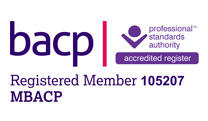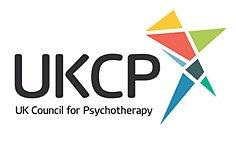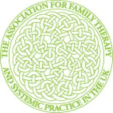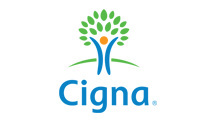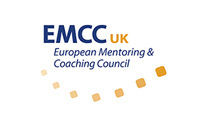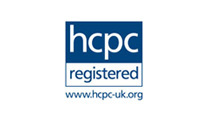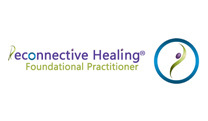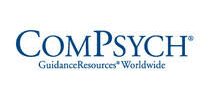What is Anorexia?
Anorexia, a mental health condition also known as anorexia nervosa, is marked by an intense fear of gaining weight and a distorted perception of your own body. It can be a deeply challenging and life-altering experience for those who live with it.
At the Leone Centre, we understand the complexity of this condition and the suffering it can cause. Our therapists provide a safe and nurturing space where you can explore the underlying emotional and psychological factors that contribute to anorexia. Leone Centre believe in a holistic and integrative approach to healing that addresses the physical, emotional, and spiritual aspects of your being. Together, we can support you on your journey towards recovery and help you rediscover your innate worth and beauty beyond external appearances.
Who is Affected by Anorexia?
Anorexia can affect people of any age, gender, ethnicity, or socioeconomic background, although it is most commonly diagnosed in adolescent and young adult women. Research suggests that eating disorders can most often occur between 16 and 40. Research also suggests that around 10% of those with an eating disorder suffer from Anorexia Nervosa.
Anorexia is more common in developed countries, with a greater emphasis on thinness and a cultural idealisation of a “perfect” body shape. People with a family history of anorexia or other eating disorders and those with certain personality traits such as perfectionism may also be at higher risk of developing anorexia. It is important to be aware that anorexia is a complex condition that can affect any individual, regardless of their background or circumstances.
Emotional signs of anorexia:
- Intense fear of gaining weight, becoming overweight, or the food itself
- Preoccupation with body weight, shape, and size
- Distorted body image or perception of one’s body
- Low self-esteem and feelings of worthlessness
- Avoidance of social situations, particularly those involving food or eating
- Irritability, mood swings, and difficulty concentrating
- Anxiety and depression, which may worsen as the anorexia progresses
- Obsessive or compulsive behaviours, such as counting calories, weighing food, or excessive exercise
- Denial of the severity of the problem or resistance to seeking help.
Physical signs of anorexia:
- Dramatic weight loss, often to the point of being underweight
- Fatigue and weakness due to insufficient calorie intake and malnutrition
- Dizziness or fainting caused by low blood pressure or dehydration
- Irregular or absent menstrual periods (amenorrhea) in females
- Constipation or other digestive problems
- Cold intolerance and feeling chilly due to decreased body fat and muscle mass
- Dry skin and hair, brittle nails, and thinning hair or hair loss
- Swelling of the arms or legs (oedema)
- Low white blood cell count (leukopenia) and other blood abnormalities.
What Role Does Therapy Play in Supporting Anorexia?
If you think you might be struggling with anorexia, talking to someone you trust about your feelings is essential. At Leone Centre, a trained therapist can work with you to address the underlying psychological factors that may be contributing to disordered eating behaviours, such as low self-esteem, perfectionism, or anxiety.
Leone Centre offers counselling services, often as part of a multidisciplinary approach. Therapy can be incredibly helpful in supporting people to overcome their battle with Anorexia when implemented alongside other treatments such as medication monitoring, a nutrition specialist and support groups. Ultimately, therapy can help individuals with anorexia regain control over their lives and improve their physical and emotional health.
Integrative Therapy: Integrative therapy is an individualised, holistic approach to therapy. It combines ideas from different therapeutic approaches, depending on your unique needs.
Couples Therapy: Couples therapy can be a practical approach for treating anorexia in couples where one partner is struggling with the condition. By involving both partners, couples therapy can improve communication, promote understanding and empathy, and provide a supportive environment for recovery.
Cognitive Behaviour Therapy: Another form of therapy for anorexia is cognitive-behavioural therapy (CBT), which helps individuals identify and change negative thought patterns and behaviours related to food and body image.
Family-based therapy: Family therapy may also be helpful, especially for adolescents with anorexia, as it involves working with the entire family to create a supportive environment and promote healthy eating behaviours.
How therapy can support someone with anorexia in the long term:
- Often as part of a multidisciplinary approach, it helps individuals develop coping skills and healthy ways of managing stress and emotions
- Addresses underlying psychological factors that may contribute to anorexia, such as low self-esteem or anxiety
- Provides ongoing support and motivation to maintain recovery and prevent relapse
- It improves body image and helps individuals develop a more positive relationship with their body
- It helps individuals to challenge negative thought patterns and beliefs related to food and weight
- Supports individuals in setting and achieving realistic goals for their recovery and their overall well-being
- Involves family members or loved ones in the recovery process, promoting a supportive environment and encouraging healthy eating behaviours
- Encourage healthy relationships and offers support in maintaining them
- Therapy can be integrated alongside other treatment plans


